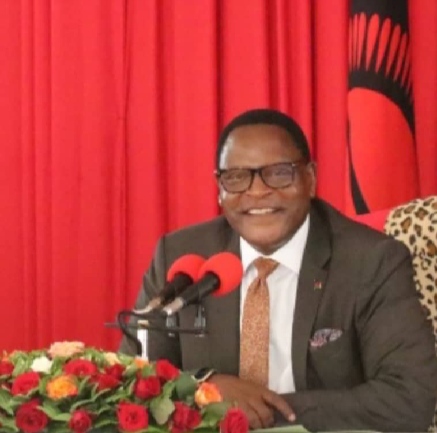By Rick Dzida
A thorough evaluation of the leadership of former President Peter Mutharika (APM) and incumbent President Lazarus Chakwera entails examining a range of performance indicators including their governance, economic management, social policies and overall impact on the country.
This analysis is crucial as both APM and Chakwera are the primary contenders in the upcoming presidential elections, and it will also provide voters with the chance to make a well-informed choice. Let’s delve into it.
Initially, we will examine three economic measures, namely GDP growth rate, inflation rate, and unemployment rate, for Malawi during the administrations of both APM and Chakwera.
In 2014, when APM assumed control of the government, the GDP growth rate was recorded at 5.6%. By 2019, it had only risen to 5.7%, indicating a slight increase in economic growth based on a report by the World Bank. To clarify, the GDP growth rate reflects the overall economic progress of a nation.
Unfortunately, the Chakwera administration later caused the Malawi GDP growth rate to drop significantly to 1.8% by 2024. This indicates that the previous APM government had a stronger economic performance compared to the current one under Chakwera.
The Consumer Price Index reported that in 2014, when APM became president, Malawi’s inflation rate was consistently at 23.7%. However, by 2019, the APM administration was able to significantly decrease the inflation rate to a single digit of 9.4%. This was an awesome achievement.
Unfortunately, the Chakwera administration has reversed the progress made by the APM government by reducing inflation rate from a single digit back to a significant 32.2% by 2024.
According to Macrotrends, the unemployment rate in Malawi during APM’s ascendancy to power in 2014 was around 4.97%. However, by 2019, he successfully decreased the unemployment rate to a low 4.95%.
However, despite Chakwera’s pledge to generate one million jobs for unemployed citizens of Malawi during his campaign, his government instead marginally raised the unemployment rate to 5.045% by 2024.
The Corruption Perception Index (CPI) for Malawi, released by Transparency International, was at 25 in 2014 when APM became the state president. However, under his administration, the CPI improved by 6 points and reached 31 by 2019, indicating a decrease in corruption perception.
Despite Chakwera’s promise to combat corruption through his Malawi Congress Party Hi 5 agenda, his administration was only able to marginally improve the perception of corruption by 3 points, resulting in Malawi’s CPI reaching 34 by the end of 2019. This suggests that APM’s administration showed a greater determination to eliminate corruption compared to Chakwera’s.
By upholding democratic principles, APM is perceived as being more democratic because of his regard for peace, rule of law, and the promotion of freedom for assembly and expression. On the other hand, Chakwera’s government has received criticisms for repressing opposing views and resorting to police violence during nonviolent demonstrations.
Furthermore, APM is viewed as more efficient in achieving concrete outcomes, preserving institutional autonomy, and safeguarding the welfare of citizens. Nevertheless, Chakwera’s government has faced backlash for failing to fulfil, promises, commitments and placing greater emphasis on foreign trips instead of addressing domestic issues.
Frankly speaking, both the APM and Chakwera administrations managed to improve road networks, build healthcare facilities, and expand educational opportunities across all levels. Nevertheless, numerous experts condemned President Chakwera for deceiving Malawians in his recent State of the Nation address (Sona) by claiming that certain infrastructure projects had been finished when they had not. This marks the first instance in Malawi’s history where a sitting president has openly lied in their Sona.
In conclusion, according to the statistics presented herein, APM surpassed President Chakwera in handling inflation, promoting economic growth, and combatting corruption. Additionally, APM’s dedication to maintaining economic stability, institutional independence, and democratic values seems to have earned him greater public confidence compared to the current President Chakwera.




